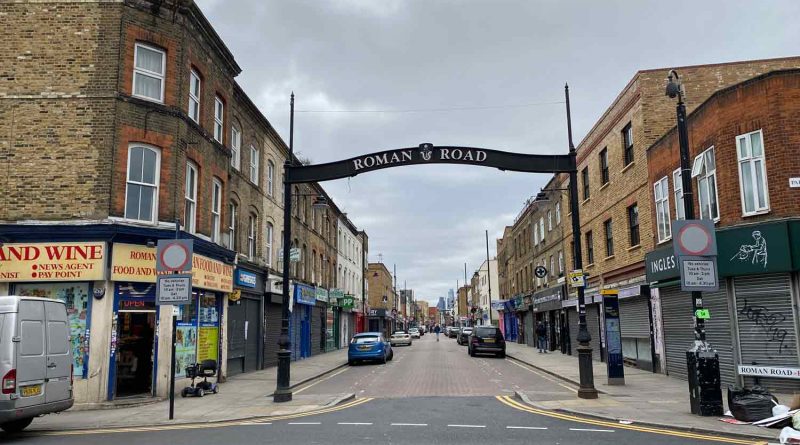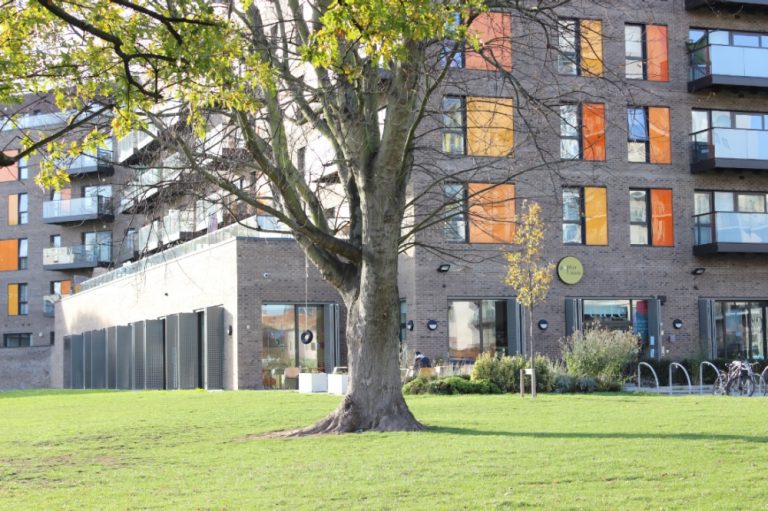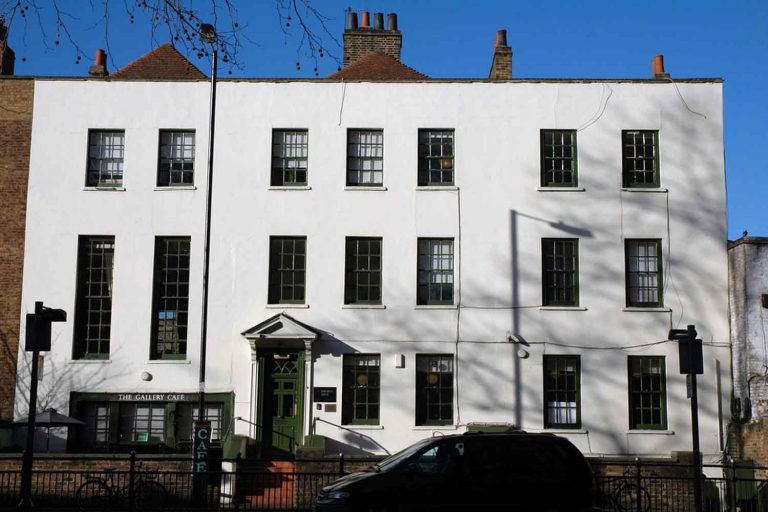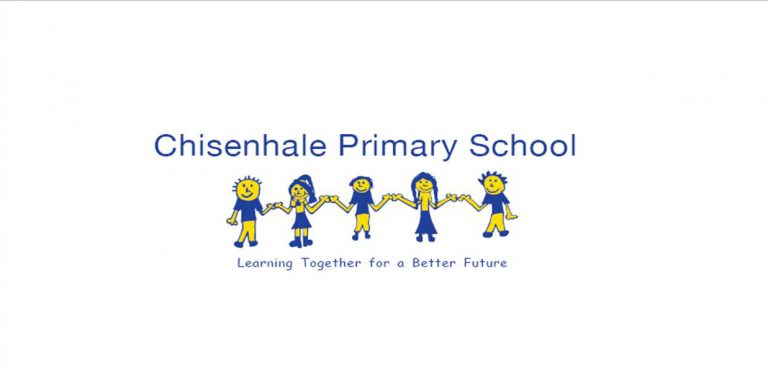Tower Hamlets Council cancels £17 million of funding for community projects
Criticism of Mayor as money earmarked for local projects including Roman Road Market waste management and Mile End Station improvements reallocated to fund the Council’s anti-austerity budget.
Tower Hamlets Council approved in a Cabinet meeting on Wednesday 21 June the cancellation of community projects funded by the Neighbourhood Community Infrastructure Levy (NCIL), totalling more than £17 million.
The decision follows a report from the Director of Planning setting out the Council’s revised proposals. These were approved by the cabinet, including the cancellation of all non-completed spending programmes agreed under the previous Labour administration and the reallocation of the funds.
Thirty-four of the cancelled projects were specifically nominated by residents and community groups, who have expressed their confusion and dismay at the news. Some of the discontinued projects include public realm improvements outside Mile End Station, sustainability and food waste recycling improvements for Roman Road Market, and Frank Dobson Square improvements in Bethnal Green.
The cabinet agreed to the allocation of £20 million to be returned to the main Neighbourhood Community Infrastructure Levy (NCIL) pot, made up of £17 million from the cancelled projects and £3 million collected from property developers in 2021/22 and 2022/23.
The Community Infrastructure Levy is a charge collected by local authorities on new developments in their area. It is an important source of income for the Council to use to deliver infrastructure for the local community.
Mike Mitchell of the Roman Road Bow Neighbourhood Forum, says: ‘It’s very strange that the previous administration didn’t spend all of the funds and let money accumulate, which means that the Mayor has been able to scoop it all up into one pot and redistribute it.’
The money returned to the NCIL pot will be reallocated towards three programme pots considered to align with the Council’s Strategic Plan 2022-26.
These are the Mayor’s Community Grants Programme for eligible voluntary and community sector (VCS) organisations, capital projects informed by the Annual Residents Survey, and affordable housing projects identified through the Council’s affordable housing programme.
Residents are faced with dirty streets, overflowing bins, poor air quality and a fundamental lack of green space – problems that this funding would have helped combat.
Cllr Sirajul ISlam
According to Government guidelines, the Council is required to set aside 15% – 25% of NCIL receipts to be spent on local priorities, in consultation with local communities.
As stated on the Government website, the Community Infrastructure Levy can be spent on ‘the provision, improvement, replacement, operation or maintenance of infrastructure’. It can be used to increase the capacity of existing infrastructure or to repair failing infrastructure if that is necessary to support development.
Mitchell says: ‘The Council says that expenditure will meet the requirements of the CIL regulations, but that’s just an assertion. I can’t see how they will ensure that.’
Over half of the £20 million returned to the main NCIL pot will be spent on the Mayor’s Community Grants Programme (MCGP).
However, the Council states in the MCGP Prospectus that funding cannot be spent on ‘capital works or major building works,’ which is at odds with the CIL’s key objective to fund public infrastructure such as transport, schools, hospitals and public realm improvements.
Tower Hamlets Council maintains that: ‘The CIL Regulations and guidance both allow for NCIL to be spent on things other than infrastructure provided it is concerned with addressing the demands that development places on the area. The Mayor’s Community Grants Programme meets this requirement.’
The stated purpose of the Mayor’s grants programme is to support the Council’s strategic plan for 2022-26. The five themes of this are tackling the cost of living, accelerating education, culture, jobs, business, and skills, investing in public services and empowering communities and fighting crime.
However, applications to the Community Grants Programme closed on 5 June 2023 before the NCIL funding reallocations were announced by the Cabinet on 21 June.
As Mitchell notes: ‘It is extremely hard to see how all grant applications submitted to the Mayor’s Community Grant Programme meet the NCIL requirement to address the demands that development places on an area. Groups had no idea when applying for grants before 5 June that the Council decision on NCIL on 21 June required their applications to address the demands of development in their areas.’
Furthermore, cancelled projects whose funding was cut on 21 June missed the deadline on 5 June to reapply for NCIL funding.
A spokesperson for the Council said: ‘Projects that are eligible for the Community Grant Programme, will have future opportunities to apply for grants during the three and a half years the programme will run.
‘The withdrawal of the NCIL funding does not mean that those projects will not go ahead in future using an alternative funding source.’ Though there has been no further information about this funding source.
Nathalie Bienfait, Green Party Councillor for Bow West, says: ‘While the community grants that this money has gone towards are a great initiative, the Mayor has diverted equally important funds away from projects which make a material difference to residents’ experience of the borough. I urge him to reconsider how these projects can continue to be funded.’
Bienfait is encouraging residents and groups who have seen their projects cancelled to submit complaints via the Council’s complaints procedure and submit petitions to be presented at a full council meeting.
Critics are also concerned about the impact that the cancellations will have on the quality of the environment in Tower Hamlets.
Leader of the Tower Hamlets Labour Group, Cllr Sirajul Islam, said: ‘The Mayor was elected on a platform to create a ‘Cleaner, Greener’ borough but these cuts, as well as his administration’s performance, have suggested that this isn’t a priority for him or his party.’
‘Residents are faced with dirty streets, overflowing bins, poor air quality and a fundamental lack of green space – problems that this funding would have helped combat. We call on Mayor Rahman to reverse his decision and reinstate the NCIL programmes our residents were expecting.’
A significant number of the cancelled schemes were concerned with the borough’s environmental commitments with £6,062,139 having been earmarked for active travel, park creation and recycling. Tower Hamlets regularly ranks amongst the worst authorities in the country for its air quality and recycling rates.
The Annual Residents’ Survey is entirely insufficient to determine spending goals for CIL.
Cllr Nathalie Bienfait
CIL guidance does not set out a specific process for public engagement. The Council is proposing to use the Annual Residents’ Survey to identify community needs, but as Mitchell points out: ‘All the survey does is ask people what they think about the Council’s services, and not what projects they want to reduce the impact of local development projects.
‘The most recent annual survey showed anti-social behaviour, affordable housing and dirty streets as the top three concerns. The Council is saying that this will involve the community and identify priorities for the new NCIL, but the Annual Residents’ Survey does not constitute meaningful community engagement.’
Insufficient public engagement is a concern shared by Cllr Bienfait, who agrees that ‘the annual residents’ survey is entirely insufficient to determine spending goals for CIL.’
Yet a spokesperson for the Council maintains that the survey ‘has the advantage of being based on statistically representative sampling. The data from the survey can be broken down by ward which makes it a useful tool to help determine priorities at a neighbourhood level.’
Tower Hamlets Council is still in the process of reviewing applications to the Mayor’s Community Grants Programme. It has announced that decisions will be made on the awards in August 2023.
If you enjoyed this article, read our piece about Bow residents’ acceptance of the Roman Road Bow Neighbourhood Plan.








